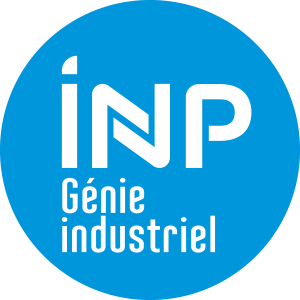Volumes horaires
- CM 24.0
- Projet -
- TD 24.0
- Stage -
- TP -
- DS -
Crédits ECTS
Crédits ECTS 6.0
Objectif(s)
(This class is conducted in English)
Please review the required skills prior to enrollment. While programming skills are not mandatory, they are recommended.
In this course, you will learn how to apply Artificial Intelligence techniques, especially Machine Learning, to support and enhance decision-aiding processes. By the end of the course, you will be able to understand and develop models that use AI to inform strategic decisions in complex, multi-criteria environments.
Contenu(s)
This course focuses on Artificial Intelligence (AI), specifically machine learning, within the context of decision aiding. Emphasis is placed on utilizing machine learning as a decision aiding tool. The content comprises:
• Introduction to machine learning techniques for decision support problems, including supervised/unsupervised and reinforcement methods. Programming is not discussed in details.
• Case studies employing these techniques, accompanied by a literature review for group work.
• Involvement of industrial partners, providing insights from their experiences.
• General knowledge of manufacturing and supply chain management, including scheduling and inventory management.
• Ability to conduct a literature review, including searching and analyzing scientific articles.
• Basic understanding of statistics, including correlation analysis and linear regression, is appreciated.
• Familiarity with Python for utilizing certain packages is beneficial but not mandatory.
• Knowledge of simulation software (e.g., Arena) is helpful but not required.
Evaluation: The primary assessment is based on a group report for each case study, supplemented by group presentations and individual work. ->("A1")
Evaluation of session 1 (N1) = "A1" (with penalties applied for any unjustified absences)
Evaluation of session 2 (N2) = Synthesis of articles and interview ("A2")
Repeated and unjustified absences will impact the final score and may lead to a score up to 0 for this class.
Using generative AI for writing reports is prohibited and lead you to a score of 0.
L'examen existe uniquement en anglais 
Le cours est programmé dans ces filières :
- Cursus ingénieur - Ingénieur IPID - Semestre 9 (ce cours est donné uniquement en anglais
 )
) - Cursus ingénieur - Ingénieur ICL - Semestre 9 (ce cours est donné uniquement en anglais
 )
) - Cursus ingénieur - Master 2 GI SIE SPD - Semestre 9 (ce cours est donné uniquement en anglais
 )
) - Cursus ingénieur - Ingénieur IdP - Semestre 9 (ce cours est donné uniquement en anglais
 )
) - Cursus ingénieur - Master 2 GI GID GOD - Semestre 9 (ce cours est donné uniquement en anglais
 )
) - Cursus ingénieur - Master 2 GI GID DPD - Semestre 9 (ce cours est donné uniquement en anglais
 )
) - Cursus ingénieur - Master 2 GI SIE SOM - Semestre 9 (ce cours est donné uniquement en anglais
 )
)
Code de l'enseignement : 5GUC4204
Langue(s) d'enseignement : 
Vous pouvez retrouver ce cours dans la liste de tous les cours.
• PM Seeger, Z Yahouni, G Alpan, (2021). Literature review on using data mining in production planning and scheduling within the context of cyber physical systems. Journal of Industrial Information Integration 28, 100371
• Cadavid, J. P. U., Lamouri, S., Grabot, B., Pellerin, R., & Fortin, A. (2020). Machine learning applied in production planning and control: a state-of-the-art in the era of industry 4.0. Journal of Intelligent Manufacturing , 1-28
• Faustmann, G. (2019). Application of machine learning in production scheduling (Doctoral dissertation, Wien).
•Géron, A. (2019). Hands-On Machine Learning with Scikit-Learn, Keras, and TensorFlow: Concepts, Tools, and Techniques to Build Intelligent Systems . O'Reilly Media.



